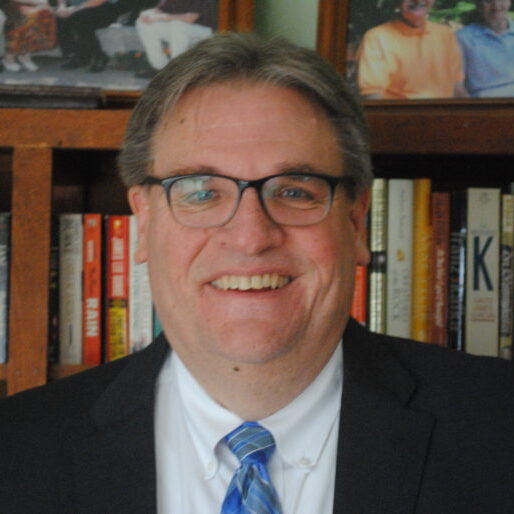Home » Doug Bratt » Authors » Page 33

Rev. Douglas Bratt is a Minister of the Word in the Christian Reformed Church in North America. After serving Christian Reformed churches in Iowa, Michigan and Maryland, he retired in July, 2024. He enjoys spending time with his grandchildren, reading good literature, and watching televised sports in his free time.
Doug began writing sermon commentaries for the CEP website in 2006 and started writing weekly in 2012.
1 Thessalonians 3:9-13
Commentary
Advent 1C
This first Sunday in the season of Advent liturgically marks the beginning of a season of waiting. Not just of waiting to celebrate Jesus’ first coming. Advent is also the season in which God’s adopted sons and daughters at least try to concentrate on waiting for Jesus’ second coming. We’ve had 2,000 years of practice…
Revelation 1:4-8
Commentary
Proper 29B
With this week’s Epistolary lesson the Lectionary takes its first step into the muddy waters that are Revelation. In fact, on this Year B Christ the King Sunday, Revelation 1:4-8 is the first step into Year C’s 6-stop journey through Revelation. It’s an appropriate first step and stop because this text the Lectionary appoints answers…
Hebrews 10:11-14, (15-18), 19-25
Commentary
Proper 28B
Hebrews 10 may please both those who proclaim and those hear the Lectionary texts from Hebrews who feel like saying, “Enough of all that talk about Jesus and blood already. Just tell us what to do.” After all, after almost endlessly teaching us about Jesus and his work, this week’s text finally teaches us what…
Mark 12:38-44
Commentary
Proper 27B
Our text’s Jesus is in Jerusalem during the last days of his life. He figuratively stands in the shadow of his upcoming betrayal and denial, trial and torture, suffering and death. Jesus is, in other words, preparing to give up virtually everything for the sake of the world he so passionately loves. The specter of…
Hebrews 9:11-14
Commentary
Proper 26B
This week’s Epistolary Lesson is a bloody one. In fact, it’s so bloody that citizens of the already figuratively blood-soaked 21st century may be uncomfortable with it. Even its preachers and teachers may wonder how to apply Hebrews 9’s truths to a world that’s already in some ways soaked in the blood of war, ethnic…
Hebrews 7:23-28
Commentary
Proper 25B
This may not seem like a particularly appropriate Sunday on which to preach about priests. After all, Protestant Christians are preparing to celebrate the birth of the Reformation that the corruption of the Roman Catholic priesthood in part fueled. What’s more, the Reformation emphasized the priesthood of all believers. Since Protestant Christians recognize that all…
Hebrews 5:1-10
Commentary
Proper 24B
This week’s Epistolary Lesson assumes that for a relationship to exist between God and God’s people, as well as among groups and between individuals, things must be repaired and restored between us. However, Hebrews 5 insists that the only way that can happen is if God does it. During this American political campaign season, both…
Hebrews 4:12-16
Commentary
Proper 23B
At least some Christians generally think of corporate worship as relatively sedate. I suspect that the worship services of most of us who write and read these sermon commentaries leave worshipers feeling pretty safe. However, the author Annie Dillard, in her book Teaching a Stone to Talk, writes about the dangers of meeting God in…
Hebrews 1:1-4, 2:5-12
Commentary
Proper 22B
Until relatively recently I’d never preached a series of sermons on the book of Hebrews. That’s partly because I’ve struggled to relate it to life in the 20th and 21st centuries. Hebrews has always seemed to me to be so impractical and theological. So I’ve shied away from much of its talk about things like…
James 5:13-20
Commentary
Proper 21B
Difficult people, things and circumstances exist over which even the most skilled and powerful people have virtually no control. But God graciously gives God’s adopted sons and daughters at least some control over how we respond to those difficulties. James 5:13-20 at least implies that the apostle understood that as well as anyone. After all,…

About Doug Bratt